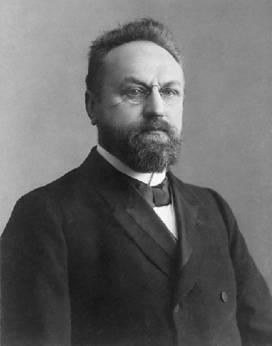The Completed Revelation of God
Herman Bavinck
From the Dutch Magnalia Dei
___________________________________________
The whole revelation of the Old Testament converges upon Christ, not upon a new law, or doctrine, or institution, but upon the person of Christ. A person is the completed revelation of God; the Son of Man is the own and only-begotten Son of God. The relationship of the Old and New Testament is not like that of law and gospel. It is rather that of promise and fulfilment (Acts 13:12 and Romans 1:2), of shadow and body (Colossians 2:17), of image and reality (Hebrews 10:1), of shaken and unshaken things ((Hebrews 12:27), of bondage and freedom (Romans 8:15 and Galatians 4). And since Christ was the real content of the Old Testament revelation (John 5:39; 1 Peter 1:11; and Revelation 19:10), He is in the dispensation of the new covenant also its capstone and crown. He is the fulfilment of the law, of all righteousness (Matthew 3:15 and 5:17), of all promises, which in Him are yea and amen (2 Corinthians 1:20), of the new covenant which is now established in His blood (Matthew 26:28). The people of Israel itself, with all its history, its offices and institutions, its temple and its altar, its sacrifices and ceremonies, its prophecy, psalmody, and wisdom teaching, achieves its goal and purpose in Him. Christ is the fulfilment of all that, first of all in his person and appearance, then in His words and works, in His birth and life, in Hi death and resurrection, in his ascension and sitting at the right hand of God.
If then, He has appeared, and has finished His work, the revelation of God cannot be amplified or increased. It can only be clarified by the apostolic witness, and be preached to all nations. Since the revelation is complete, the time is now come in which its content is made the property of mankind. Whereas in the Old Testament everything led up to Christ, in the New Testament everything is derived from Him. Christ is the turning point of times. The promise, made to Abraham, now comes to all nations. The Jerusalem which was below gives way to the Jerusalem which is above and is the mother of us all (Galatians 4:26). Israel is supplanted by the Church out of all tongues and peoples. This is the dispensation of the fulness of times, in which the middle wall of partition is broken down, in which Jew and Gentile is made a new man, and in which all is gathered together under one head, namely, Christ (Ephesians 1:10 and 2:14-15).
And this dispensation continues until the fulness of the Gentiles is come and Israel is saved. When Christ has gathered His Church, prepared His bride, accomplished His kingdom. He will give it to the Father in order that God may be all in all (1 Corinthians 15:28). I will be thy God, and ye shall be my people: that was the content of the promise. This promise is brought to its perfect fulfilment in the new Jerusalem in Christ, through Him who was and who is and who is to come (Revelation 21:3).

Herman Bavinck (1854-1921)
Dutch Reformed theologian and churchman
